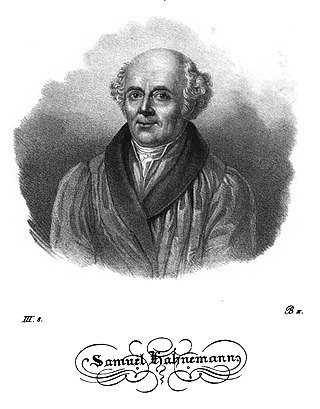
Homeopathy or homoeopathy is a pseudoscientific system of alternative medicine. It was conceived in 1796 by the German physician Samuel Hahnemann. Its practitioners, called homeopaths or homeopathic physicians, believe that a substance that causes symptoms of a disease in healthy people can cure similar symptoms in sick people; this doctrine is called similia similibus curentur, or "like cures like". Homeopathic preparations are termed remedies and are made using homeopathic dilution. In this process, the selected substance is repeatedly diluted until the final product is chemically indistinguishable from the diluent. Often not even a single molecule of the original substance can be expected to remain in the product. Between each dilution homeopaths may hit and/or shake the product, claiming this makes the diluent "remember" the original substance after its removal. Practitioners claim that such preparations, upon oral intake, can treat or cure disease.

Medicine is the science and practice of caring for patients, managing the diagnosis, prognosis, prevention, treatment, palliation of their injury or disease, and promoting their health. Medicine encompasses a variety of health care practices evolved to maintain and restore health by the prevention and treatment of illness. Contemporary medicine applies biomedical sciences, biomedical research, genetics, and medical technology to diagnose, treat, and prevent injury and disease, typically through pharmaceuticals or surgery, but also through therapies as diverse as psychotherapy, external splints and traction, medical devices, biologics, and ionizing radiation, amongst others.

Osteopathy, unlike osteopathic medicine, which is a branch of the medical profession in the United States, is a pseudoscientific system of alternative medicine that emphasizes physical manipulation of the body's muscle tissue and bones. In most countries, practitioners of osteopathy are not medically trained and are referred to as osteopaths.
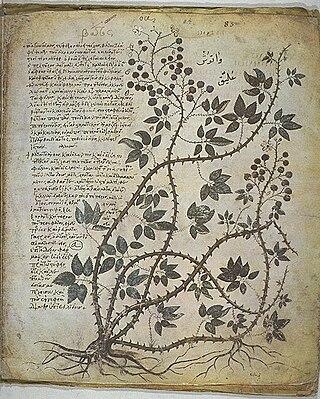
Materia medica is a Latin term from the history of pharmacy for the body of collected knowledge about the therapeutic properties of any substance used for healing. The term derives from the title of a work by the Ancient Greek physician Pedanius Dioscorides in the 1st century AD, De materia medica, 'On medical material'.

Health On the Net Foundation (HON) was a Swiss not-for-profit organization based in Geneva which promoted a code of conduct for websites providing health information and offered certificates to those in compliance.

The American College of Physicians (ACP) is a Philadelphia-based national organization of internal medicine physicians, who specialize in the diagnosis, treatment, and care of adults. With 161,000 members, ACP is the largest medical-specialty organization and second-largest physician group in the United States. Its flagship journal, the Annals of Internal Medicine, is among the most widely cited peer-reviewed medical journals in the world.
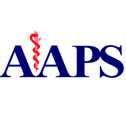
The Association of American Physicians and Surgeons (AAPS) is a politically conservative non-profit association that promotes conspiracy theories and medical misinformation, such as HIV/AIDS denialism, the abortion–breast cancer hypothesis, and vaccine and autism connections, through its official publication, the Journal of American Physicians and Surgeons. The association was founded in 1943 to oppose a government attempt to nationalize health care. The group has included notable members, including American Republican politicians Ron Paul, Rand Paul and Tom Price.
Pyridoxine/doxylamine, sold under the brand name Diclectin among others, is a combination of pyridoxine hydrochloride (vitamin B6) and doxylamine succinate. It is generally used for nausea and vomiting of pregnancy (morning sickness); even though its efficacy has not been proven and subsequent research has led to the removal of recommendations in medical journals.
UpToDate, Inc. is a company in the Wolters Kluwer Health division of Wolters Kluwer, the main product of which is the eponymous UpToDate, a software system that is a point-of-care medical resource.

André Gernez was a French physician, oncologist, and radiologist. His work has received criticism from other medical professionals as being unscientific, or alternative medicine.
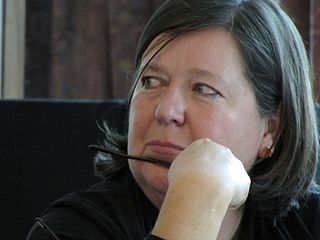
Ellen F. M. 't Hoen is an international medical activist. She is an expert in medicines policy and intellectual property law and has been a consultant to a number of countries and international organisations. In 2005 and 2006 she was listed as one of the 50 most influential people in intellectual property in the world by the journal Managing Intellectual Property.
Medical ghostwriters are employed by pharmaceutical companies and medical-device manufacturers to produce apparently independent manuscripts for peer-reviewed journals, conference presentations and other communications. Physicians and other scientists are paid to attach their names to the manuscripts as though they had authored them. The named authors may have had little or no involvement in the research or writing process.
Martin Winckler is a French M.D. and short story, novel and essay writer. His main topics are the French medical system, the relationships between caregivers and patients and Women's Health. One of the first TV series critics in France, he has written numerous articles and books on the subject.
The inverse benefit law states that the ratio of benefits to harms among patients taking new drugs tends to vary inversely with how extensively a drug is marketed. Two Americans, Howard Brody and Donald Light, have defined the inverse benefit law, inspired by Tudor Hart's inverse care law.
Volume! The French Journal of Popular Music Studies is a biannual peer-reviewed academic journal, created in 2001, and "dedicated to the study of contemporary popular music".
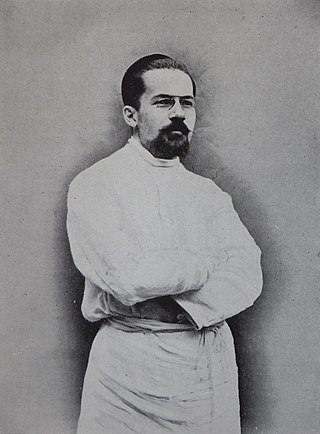
Paul Joseph Edmond Carton was a French physician, naturopath and practitioner of vegetarianism.
The International Society of Drug Bulletins works to increase the sharing of high quality information on medical treatments and medication between countries. It was started in 1986 and is supported by the World Health Organization.
Henri Félix Camille Beaulieu was a French accountant, naturist, anti-militarist, anarchist and then communist. He wrote many articles in radical journals. In his later years he was active in the Committee of Social Defence (CDS), an organization that helped political prisoners and exiles.
Jeffrey Kenneth Aronson is a British clinical pharmacologist.
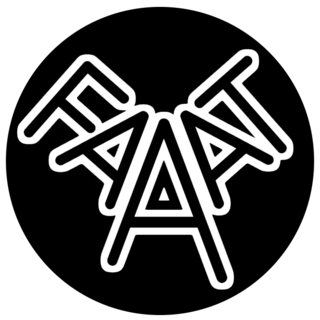
For Alternative Approaches to Addiction, Think & do tank is an international non-profit organization working on drug policy, created in 2015 and based in Paris, France.










